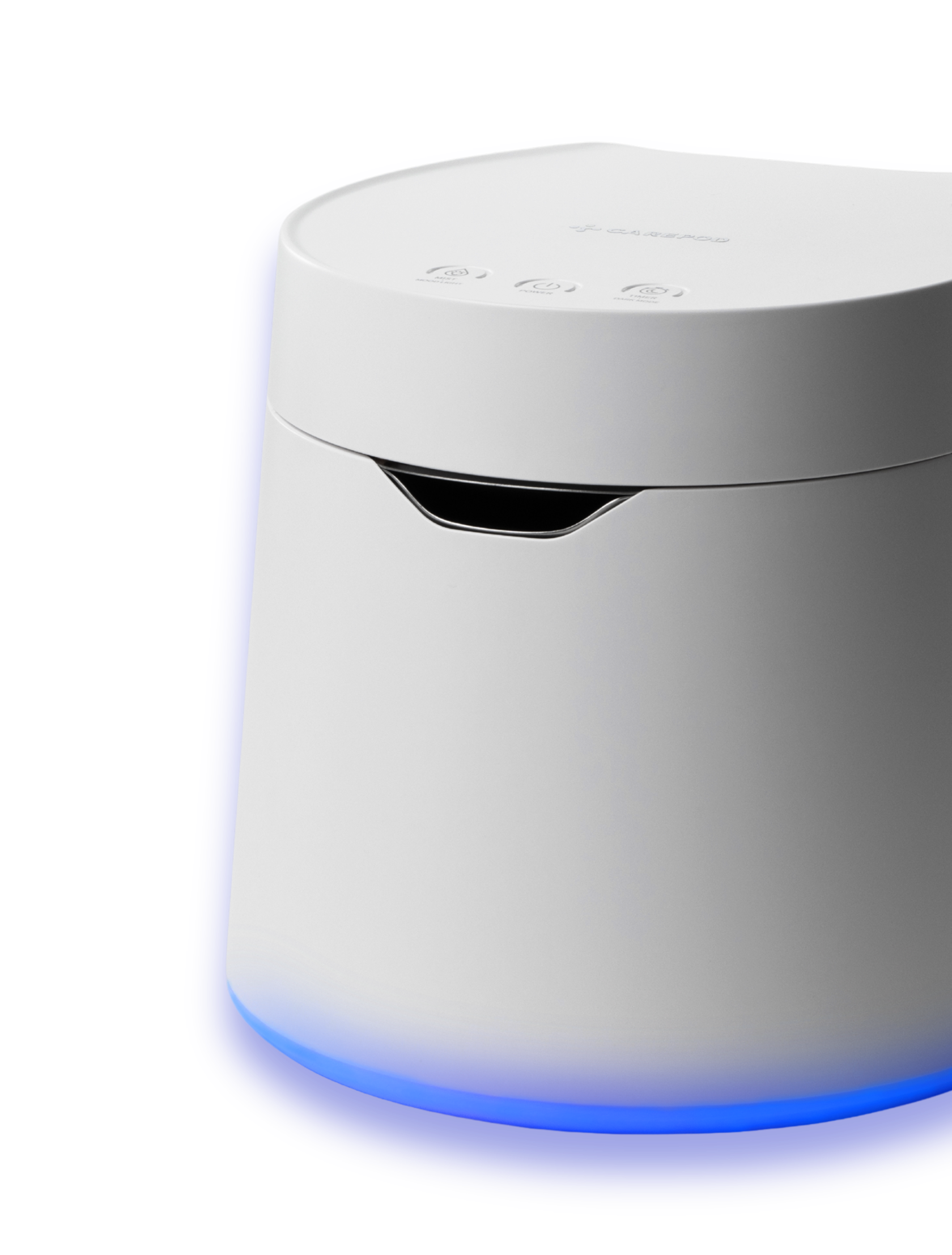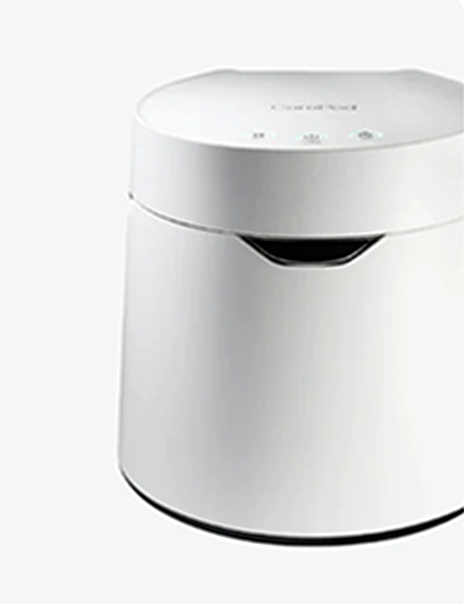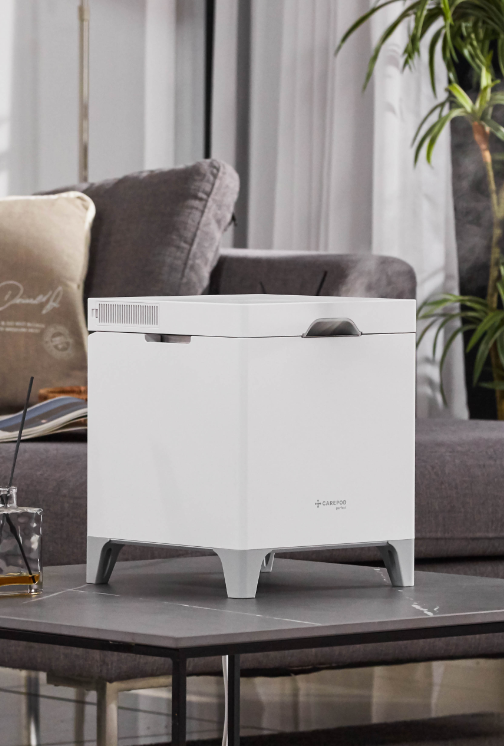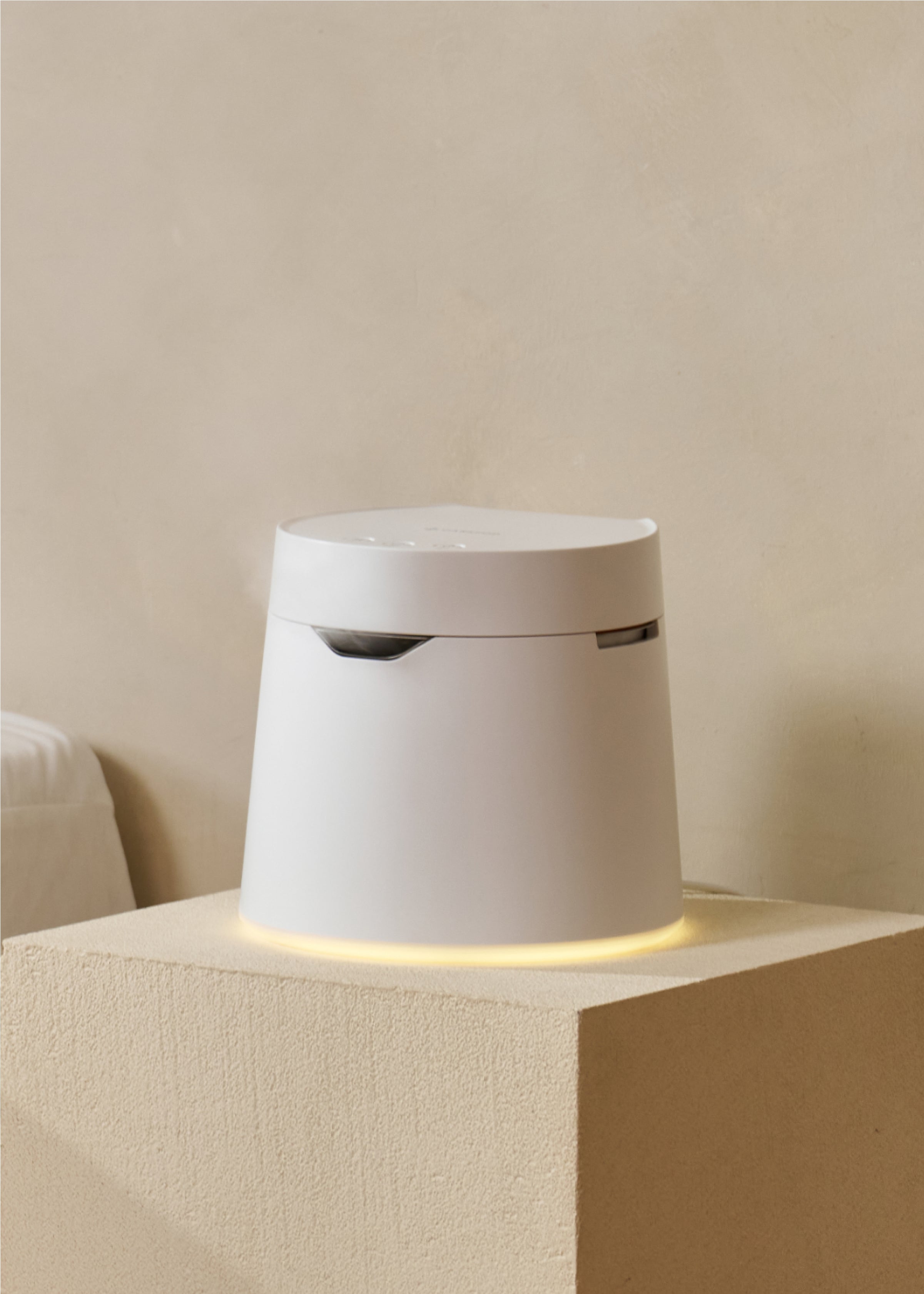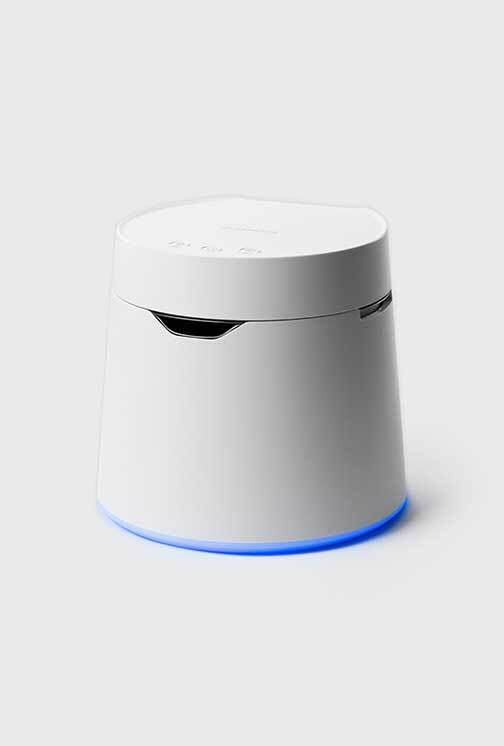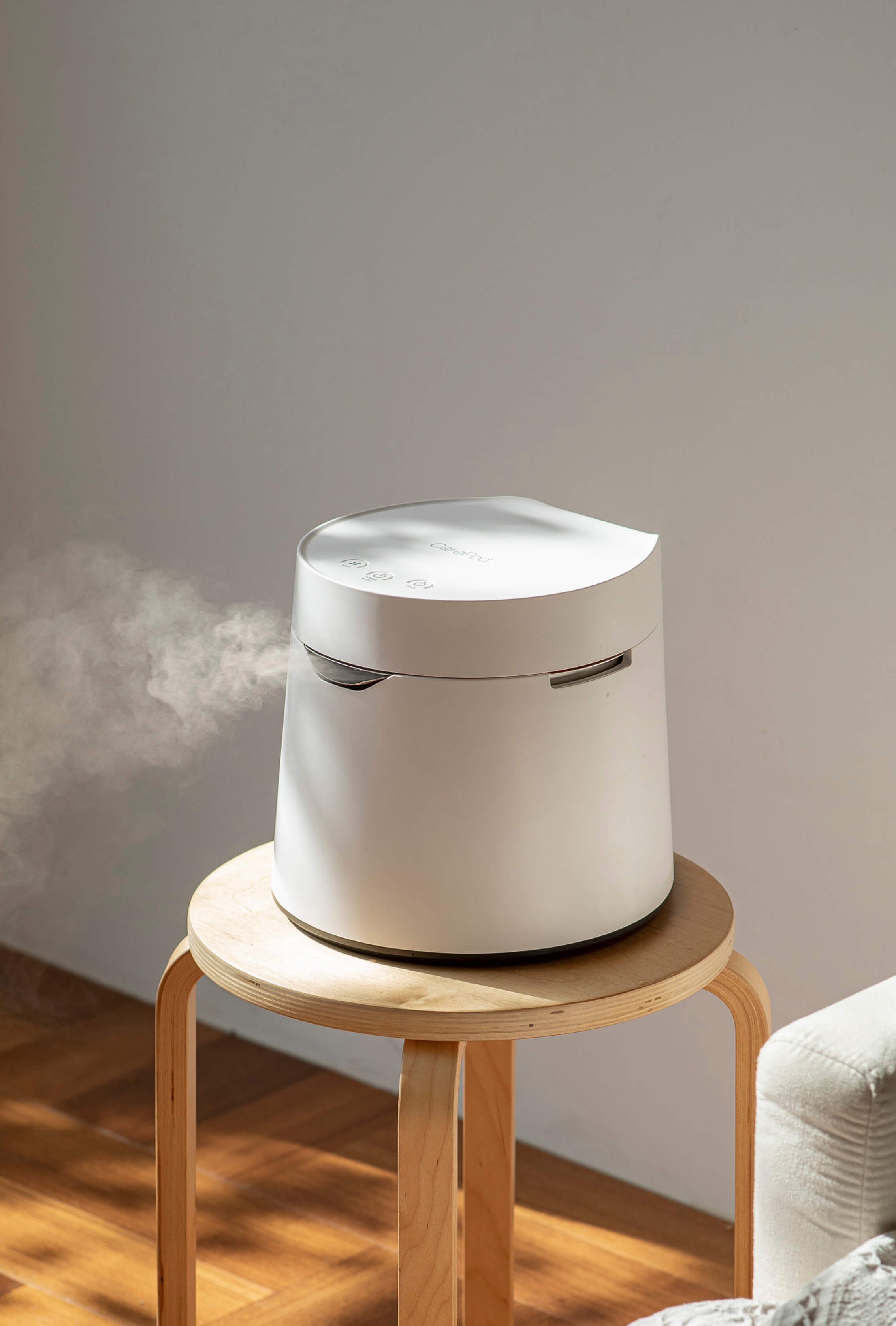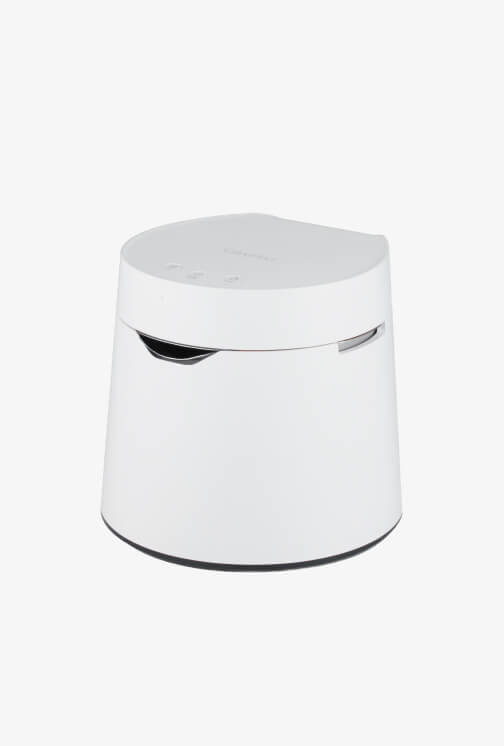7 Weekly Habits To Transform Your Sleep & Relaxation

As we all know, sound sleep is the cornerstone of health and well-being. Yet, many of us struggle with restless nights and groggy mornings. While there's no miracle cure, the good news is that it's perfectly possible to establish positive habits that lead to better rest and relaxation.
In this comprehensive guide, we'll explore seven ways to transform your nighttime habits and help you get a good night's sleep. From setting up a soothing bedtime routine to harnessing the benefits of a humidifier, implementing these tips can lead to more restful nights and rejuvenated days.
1. Create A Consistent Sleep Schedule

Establishing a regular schedule is a key habit that will significantly improve the your quality of sleep.
The human body thrives on routine. When you go to bed and wake up at the same time every day, ideally including weekends, your body's biological clock is properly synchronized. This is known as a circadian rhythm.
However, having an inconsistent sleep schedule — say, sleeping at 8:00 P.M. on a Thursday and then staying up until 3 in the morning after Friday night — will mess up your circadian rhythm, and in turn, all kinds of hormones and vital signals in your body.
But you can make the decision to take control of your sleep, going to bed and waking up at a reasonably similar time every day. This consistency helps to re-calibrate your body's internal clock properly. This means your body will properly release of sleep-inducing hormones such as melatonin at nighttime and promote a higher sense of alertness when it's time to be awake.
Over time, this regularity will allow you to become more efficient at falling asleep and waking up naturally. This means, faster, deeper, and more uninterrupted hours of sleep, which leads to higher energy levels in the morning.
2. Design A Comfortable Sleep Environment

Your bedroom should be a sanctuary for rest and relaxation, so designing comfortable sleep environment is a crucial step towards establishing a healthy sleep routine.
This begins with selecting comfortable bedding; be sure to choose the right mattress, pillows, and blankets to support your preferred sleeping position.
For example, stomach sleepers may benefit from firmer pillows and mattresses for better spinal alignment, while side sleepers may opt for softer options to relieve pressure on shoulders and hips without losing support
Additionally, maintaining an optimal room temperature is vital. A reasonably cool, well-ventilated room typically promotes better sleep. Air conditioning, air purifiers, humidifiers (more on this later), fans, and open windows can go a long way in improving your sleep surroundings.
Further minimize disturbances by darkening your room with blackout curtains and reducing noise using earplugs or a white noise machine. Limiting light and sound can create a more peaceful environment, helping you stay asleep longer and fall into deeper rest. For an even better sleep routine, try removing the TV from your bedroom to reinforce the space as a place for rest and relaxation
By taking these some or all of these steps, you'll be sure to turn your bedroom into a haven for more peaceful nights and improved overall well-being.
3. Establish A Soothing Nighttime Routine

A calming nighttime routine can be a powerful tool for improving sleep and relaxation. Having a regular regimen like this will serve as a signal to your body that it's time to wind down and prepare for a restful sleep.
This might involve a series of calming activities. Think of things like reading a soothing nighttime book, practicing gentle stretches, engaging in mindful meditation techniques, trying deep breathing exercises, or enjoying a cup of herbal tea (caffiene-free, of course).
The key here is consistency; by following the same sequence of sleep-conducive activities each night, your body will learn over time to anticipate sleep and adjust its internal clock accordingly. Having this regular routine will create a comforting ritual that helps you seamlessly transition from the busyness of the day to a state of relaxation at bedtime.
4. Unplug And Disconnect

In today's day and age, disconnecting from electronic devices and avoiding social media in the hours leading up to bedtime can have an immediate impact on your sleep and relaxation.
Melatonin is a well-known hormone your body produces to regulate sleep, essentially making you feel properly tired when it's time to go to bed. But did you know that blue light emitted by screens, including phones, tablets, and computers, suppresses the production of melatonin?
On top of that, engaging with social media or other kinds of stimulating content can over-activate your mind, making it much more difficult to wind down for the night.
By turning off digital screens at least an hour before bedtime, you allow your body to naturally produce sufficient melatonin levels so that it becomes easier to fall asleep.
You could even look into purchasing specialized glasses that are designed to help reduce blue light exposure. And if you replace emails, texting, and social media scrolling with the calming activities of your nighttime, as discussed earlier, you'll be well on your way to a better night's rest.
5. Watch Your Late-Night Cravings

While it may be tempting to give in to those midnight cravings, doing so can actually be detrimental to your sleep quality.
When you consume heavy meals or snacks close to bedtime, your digestive system is forced to work overtime, potentially leading to discomfort and indigestion that can keep you up at night.
Moreover, certain foods, such as those high in sugar and caffeine, can stimulate your mind, mess up your heart rate, and prevent your brain and body from transitioning into a state of relaxation.
To ensure adequate sleep at night, it's best to finish eating at least two or three hours before bedtime. But if you really need an after-hours snack, opt for something that's light, healthy, and easily digestible, such as a a banana or small serving of yogurt.
6. Embrace The Benefits Of A Humidifier

Introducing a humidifier into your bedroom can be a game-changer for both sleep quality and overall health.
Dry air, which is especially common during winter months when heating systems are in full swing, not only lead to discomfort and disrupted sleep, but can also cause numerous respiratory issues. There's nothing more uncomfortable than laying in bed with a scratchy throat or stuffy nose!
A humidifier works by adding moisture into your surroundings to combat dry air. This can help soothe your airways to prevent irritation and promote comfortable breathing while you sleep.
Moreover, humidifiers can help maintain the natural moisture balance of your skin, preventing dryness and itchiness.
With the right humidity level, you're more likely to enjoy uninterrupted sleep and wake up feeling refreshed and healthy. So be sure to at least consider this valuable investment for your sleep-enhancing toolkit!
7. Build Positive Daily Habits (Napping, Exercise, Natural Light)

Last but not least, healthy habits as part of your daily routine can play a crucial role in shaping your nighttime rest. Here are some examples
- Avoid napping during the day, particularly if it's more than 30 minutes or during later hours. If you push through that afternoon slump without snoozing, this should ensure that you're tired enough to fall asleep quickly and soundly at night
- Regular exercise, ideally before it gets dark, can help reduce stress, promote relaxation, and benefit your overall physical health — all of which will undoubtedly enhance the quality of your sleep cycles.
- Spend some time outside! Exposure to natural sunlight helps to regulate your body's internal clock, making it easier to naturally fall asleep and wake up at desired times.
Final Thoughts

In conclusion, incorporating these seven healthy sleep habits into your daily life can transform your sleep and relaxation, allowing you to wake up feeling refreshed, revitalized, and ready to take on each day with renewed energy.
To recap:
- Create a consistent sleep schedule, helping your body's circadian clock adjust to falling asleep and waking up at the same time on a regular basis.
- Design a comfortable sleep environment, making your room a peaceful haven for rest and relaxation.
- Establish a soothing nighttime routine, to help you wind down from a busy day and get ready for bedtime.
- Unplug and disconnect from your phones, screens, and social media, to prepare for a better night's rest.
- Watch your late-night cravings; avoid heavy meals, caffeinated beverages, and alcohol before bedtime
- Embrace the benefits of a humidifier, a valuable investment to help you breathe easier at night and promote overall health.
- Build positive daily habits, which are the cornerstone of quality sleep and balanced living.
By committing to these actionable steps in your daily habits, you'll not only enhance your nighttime slumber but also begin to work towards a healthy lifestyle, ultimately leading to better physical and mental well-being in the long run.
Happy resting!

